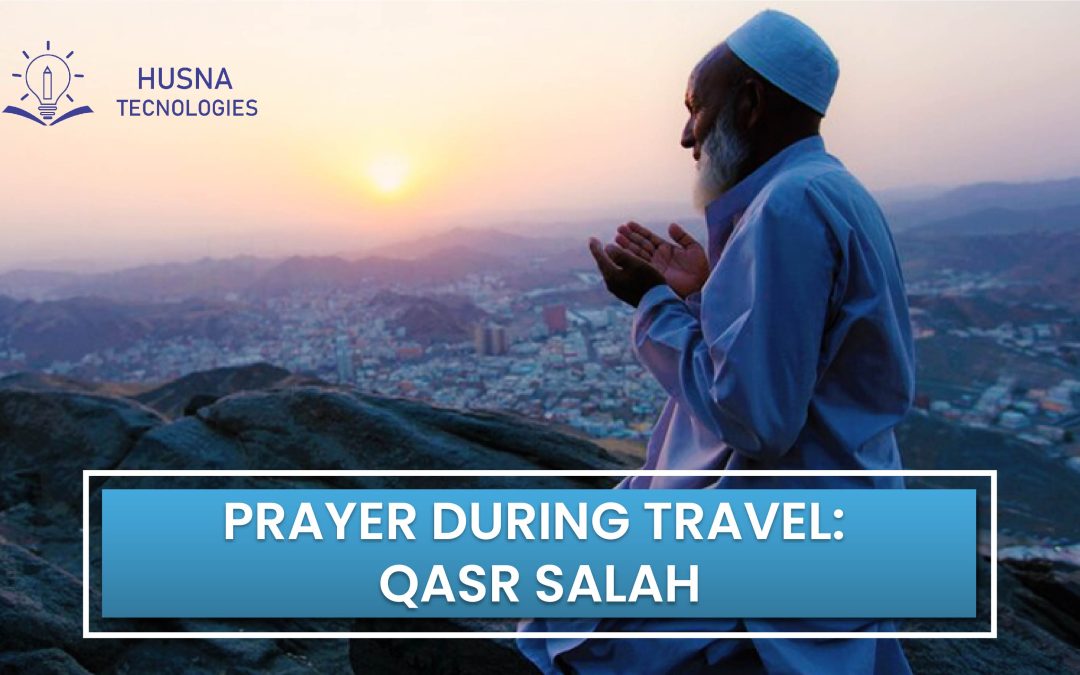Today, we’ll discuss Qasr Salah, which is a type of prayer performed while traveling. When traveling, individuals frequently get confused about the principles of minimizing the Salah. Scholars are frequently questioned about the criteria for doing Qasr Salah and how to pray it. So, for your convenience, we’ve included all you need to know in one post to help you conduct prayer during travel: Qasr Salah.
Principals of Shortening the Salah As Qasr Salah:
“And when you travel throughout the land, there is no blame upon you for shortening the prayer, if you fear that those who disbelieve may disrupt [or attack] you. Indeed, the disbelievers are ever to you a clear enemy”
According to the above-mentioned Quranic verse translation, there is no harm in reducing your prayers when traveling. Allah Almighty has always desired ease for his creation, thus even the most difficult tasks are made simple by his will. As a result, if Muslims are traveling, it is permitted to reduce their prayers. Instead of four fard rakats of Isha, Zuhr, and Asr, you might pray two. Both the Quran and the Sunnah mention the minimization of prayers.
How Far Must One Travel to Offer Qasr Salah?
No verse specifies the distance or number of days required to pray Qasr Salah. According to scholars, the necessary distance for praying Qasr Salah is 88.7 kilometers (55 miles) from home. The answer to this question, however, may be found in the hadith listed below.
“The Prophet (PBUH) once traveled and stayed for nineteen days and offered shortened prayers. So when we traveled (and stayed) for nineteen days, we used to shorten the prayer but if we traveled (and stayed) for a longer period we used to offer the full prayer.”
Charity of Allah:
When asked why he prays Qasr Salah, the Prophet Muhammad (PBUH) said, “It is a charity Allah has given you, therefore accept His charity.” Thus, Qasr Salah is Allah Almighty’s generosity. Salah is a type of worship that draws you closer to Allah Almighty, and he does not want his people to see it as a hardship. So, on regular days when you are not traveling, you should offer the entire Salah. If you are praying while traveling, however, you should offer Qasr Salah, an abbreviated Salah.
Congregational Prayer:
It is nevertheless recommended that tourists should worship at a Mosque in a group setting. If he visits a local mosque, he should refrain from offering Qasr Salah and instead offer the entire set of prayers as directed by the imam.
Importance of Praying:
The ability to offer prayer is a characteristic of religious individuals. Muslims who believe in Allah’s oneness, have a solid belief in Islamic knowledge, provide charity, and offer prayers are well-liked by Allah Almighty. Prayer is the most fundamental pillar of Islam, according to Quran. Five times a day prayers not only reward good actions but also bring one closer to Allah. He/she becomes Allah’s favorite person, and what could be more precious than being included in Allah’s list of favored people.
“Prayer is the ascension for the believer”
One can build a deep and enduring relationship with Allah via prayer. Duas uttered during the Sujood are exceptional Duas that directly address Allah. According to the Holy Prophet (PBUH):
Even if you are chopped up and burnt, do not associate partners with Allah and do not miss your fardh prayers deliberately. Allah will move His protection away from a person who misses his fardh prayers deliberately.”
Muslims are required to offer five times daily prayers. Muslims are prerequisite to pray after the age of seven, and they are obliged to pray for the rest of their lives. Inner satiation and tranquility can be attained via prayer. The method to converse with Allah is through prayer. It is considered a sin to skip prayers beyond the age of seven. Even in the hereafter, Allah will ask you about your prayers. The significance of prayers can be deduced from these Hadith and Quranic verses.
“On the Day of Judgment, a slave will be questioned about his prayers first. If his prayers are good, his other deeds will be good, too. If his prayers are bad, his other deeds will be bad, too.”
Conclusion:
After Prophet Muhammad’s (PBUH) Miraaj voyage, prayer became necessary. In Islam, there are five prayers: Fajar, Zuhr, Asr, Maghreb, and Isha. Every prayer has its rakats and timings. However, Allah has specified distinct rakats for the prayers during the travel for the convenience of the people. “There is nothing superior to a person who is given by Allah the opportunity to perform a two-rak’ah prayer giving. As he is busy with praying, goodness and good deeds are poured onto him.” In a word, Namaz is one of the most important pillars of Islam.

